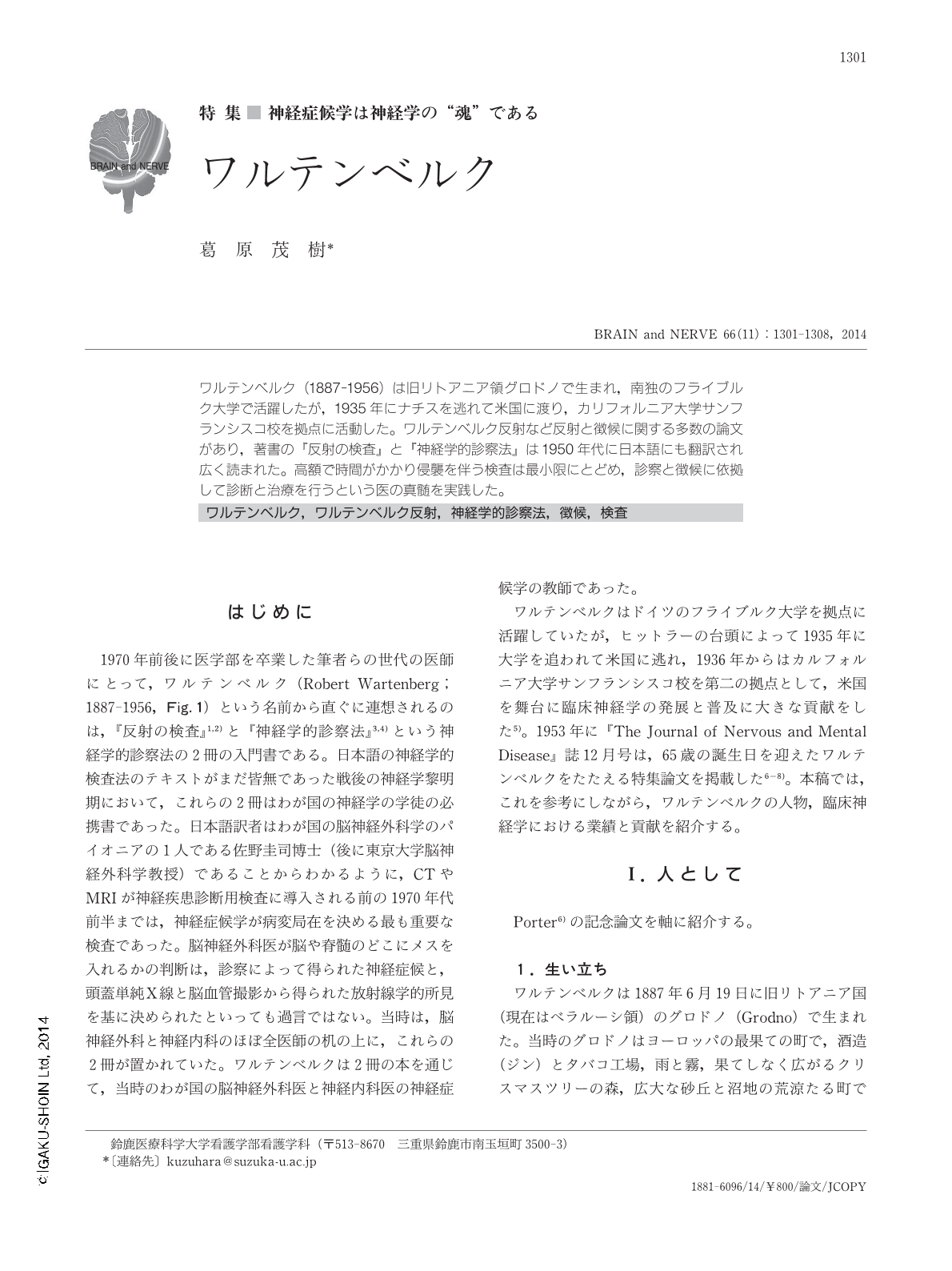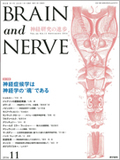Japanese
English
- 有料閲覧
- Abstract 文献概要
- 1ページ目 Look Inside
- 参考文献 Reference
ワルテンベルク(1887-1956)は旧リトアニア領グロドノで生まれ,南独のフライブルク大学で活躍したが,1935年にナチスを逃れて米国に渡り,カリフォルニア大学サンフランシスコ校を拠点に活動した。ワルテンベルク反射など反射と徴候に関する多数の論文があり,著書の『反射の検査』と『神経学的診察法』は1950年代に日本語にも翻訳され広く読まれた。高額で時間がかかり侵襲を伴う検査は最小限にとどめ,診察と徴候に依拠して診断と治療を行うという医の真髄を実践した。
Abstract
Wartenberg was born in 1887 in Grodno, old Lithuania (present-day Belarus). He received his medical degree from the University of Rostock in 1919, and worked at the University of Freiburg until 1935, when he immigrated to the United States to escape Nazi Germany. He then worked at the University of California, San Francisco, and was appointed Clinical Professor of Neurology in 1952. He died of a heart illness in 1956.
Wartenberg wrote more than 150 papers on clinical neurology in German and English, especially on reflexes and signs. His books, "Examination of Reflex" and "Diagnostic Tests in Neurology" were translated into many languages, including Japanese. His contribution to the study of reflexes includes Wartenberg's reflex of the thumb, head dropping test in Parkinson's disease, necessity of differentiating abdominal muscle and abdominal skin muscle reflexes, and many others. He had knowledge, skill, art and ability enough to translate difficult problems into tangible methods of diagnosis and treatment. He tried to diagnose and treat patients quickly, with minimum laboratory tests, and avoided invasive tests and expense of time and money. His efforts to provide patients with the best treatment in terms of time, safety, and cost, is the essence of medicine and is still worth practicing in modern neurology using advanced technology.

Copyright © 2014, Igaku-Shoin Ltd. All rights reserved.


